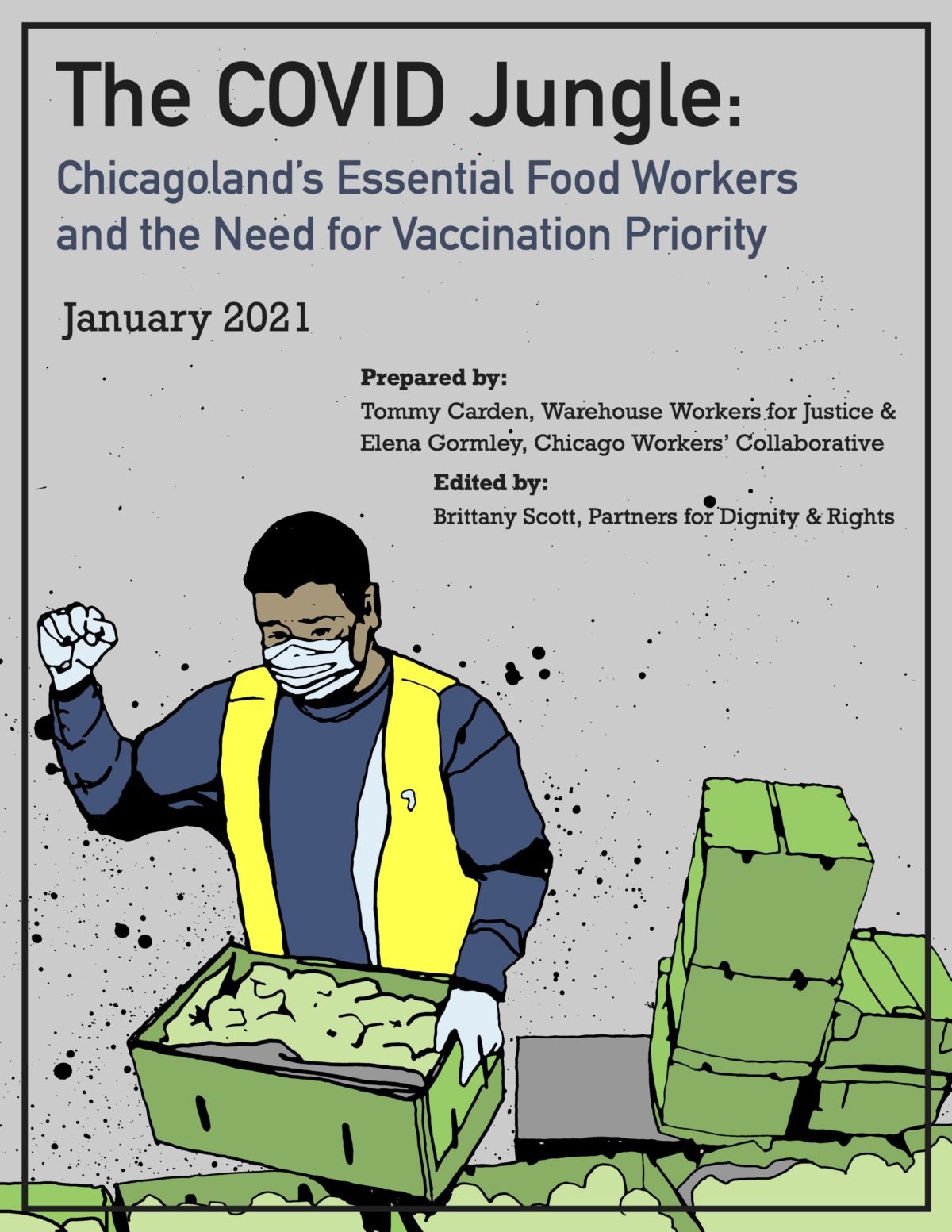The COVID Jungle: Chicagoland’s Essential Food Workers and the Need for Vaccination Priority

On Tuesday January 12, 2021, worker justice organizations released “The COVID Jungle: Chicagoland’s Essential Food Workers and the Need for Vaccination Priority.” Chicagoland is home to the country’s second largest food economy. Food production and warehousing in its suburbs make up a who’s who of major food corporations including Mars Wrigley, Trader Joe’s, Starbucks, Skinny Pops, McDonalds and more. This first-of-its-kind report shows how essential food workers, who have made quarantining possible during the pandemic, could be overlooked for life-saving vaccine priority because they’re temporary workers. The report is a result of 90 worker interviews in food production, distribution, and logistics currently working in the Chicago area throughout the pandemic, and includes first-hand worker testimonies.
Today, Illinois is one of the most crucial production, logistics and distribution hubs for food products in the United States with over 2,600 food manufacturers alone. Major outbreaks in Illinois’ factories and warehouses have been an ongoing problem and are second only to nursing homes. This report highlights key takeaways from the report and recommendations developed by workers from the frontlines.
“We don’t want to see any more workers’ lives lost or more people get sick because temp workers on the front lines of the pandemic are placed at the end of the line for the vaccine,” said Sophia Zaman, Executive Director of the Raise the Floor Alliance. “Our report is intended to uplift the stories and sacrifices of the food workers who have allowed us to stay at home during this terrible time. They need to be prioritized, which includes the staffing agency workers.”
The COVID Jungle: Chicagoland’s Essential Food Workers and the Need for Vaccination Priority
January 2021
Prepared by: Tommy Carden, Warehouse Workers for Justice & Elena Gormley, Chicago Workers’ Collaborative
Edited by: Brittany Scott, Partners for Dignity & Rights
